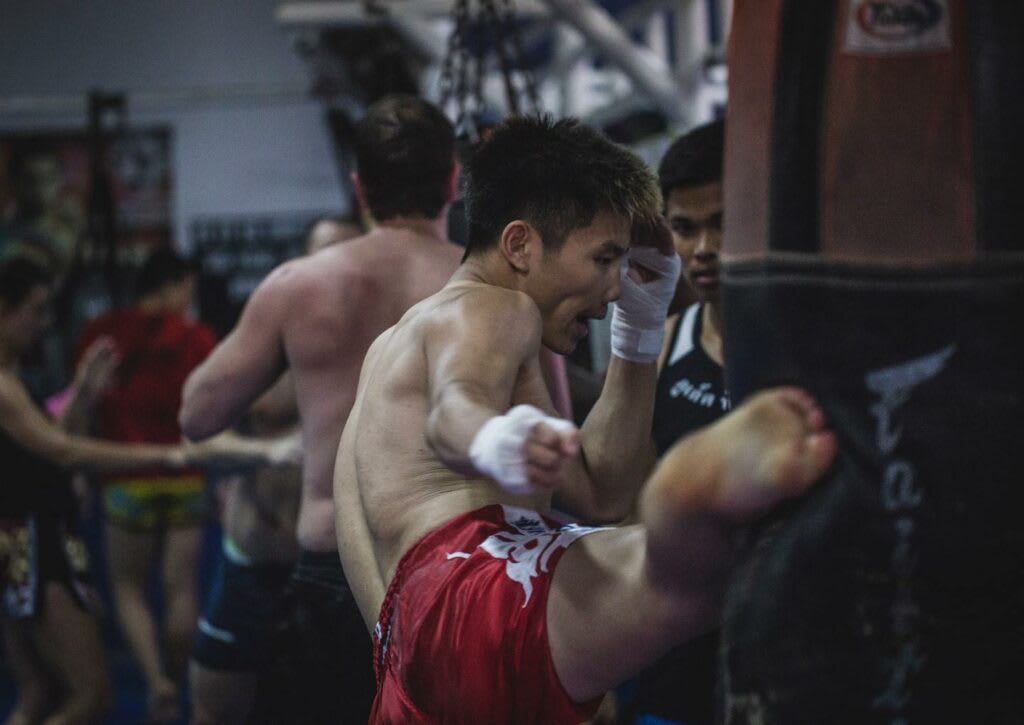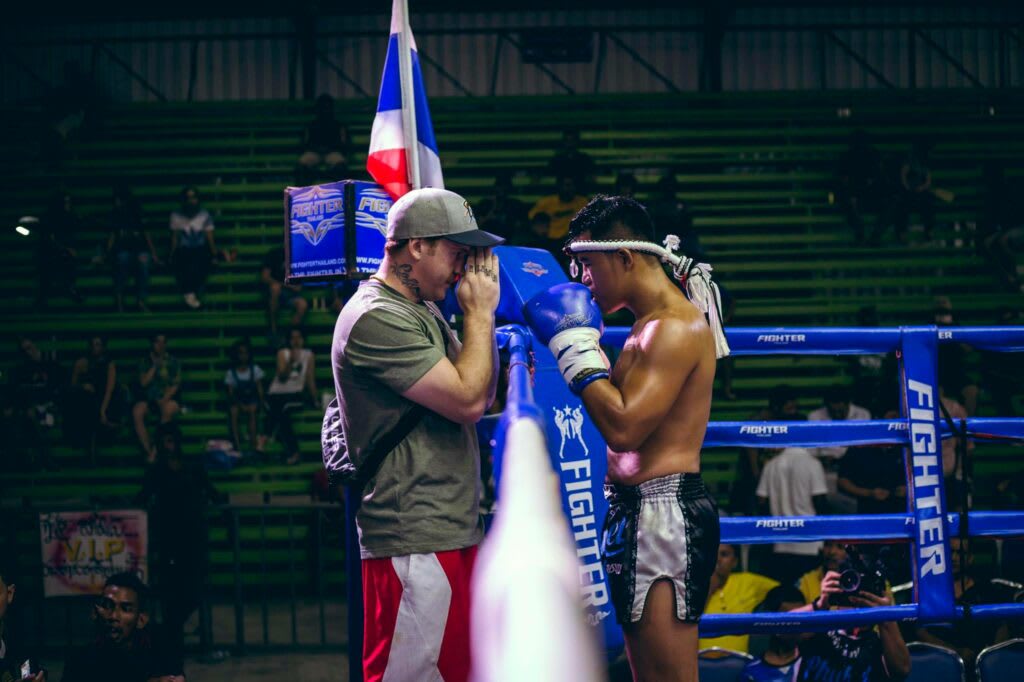This is the second in a series of interviews with the major players of the fight scene on the island of Phuket, Thailand. These are the stories of survival during the Covid pandemic and its rippling effects.
Boyd Clarke, the owner of Phuket Top Team, will be breathing a little easier on March 1.
That’s when his Muay Thai and mixed martial arts gym finally returns to a full timetable of classes as arrival requirements in Phuket ease.
The Thai island has endured almost two years of Covid-induced restrictions, reducing Clarke’s gym to a mere two Muay Thai classes a day. The pain Clarke has endured in that time is apparent in a recent interview with The AllStar.
“I can’t put it in terms monetarily, physically, emotionally it’s all as bad as you could imagine it would be,” the Australian said. “I couldn’t have thought 22 months later, we’re still waiting to see if we can make income.”
Clarke thought it may take Thailand a bit longer than other nations to get their vaccination numbers up. He says the country is always a little behind on things like this, but he knew they’d catch up eventually. As things were starting to look up, the Delta and Omicron variants began to spread. Government restrictions remained an issue.
Arriving in Phuket
The lockdowns led to many gyms closing, as visitor numbers dried up, and the once-vibrant fight scene went quiet. Once again, Clarke faced a serious challenge, much like the one he contended with not long after he arrived in Thailand in 2009.
The younger Boyd was a martial arts fanatic who arrived in Phuket to ramp up his Muay Thai skills, with plans to move on to Brazil and eventually a professional fight career in the United States. In his first year, he was diagnosed with Hepatitis A, which effectively shut down his fighting ambitions, and propelled him into business with his wife.
After experiencing unexpected success selling Muay Thai equipment to international buyers, Clarke and his wife opened Phuket Top Team in 2012. The gym grew rapidly in name and clientele, as the island capitalized on the increasing popularity of fight training and fitness tourists. Soon, UFC champions including Michael Bisping and Cris Cyborg would grace Phuket Top Team’s training mats.
A decade on, Clarke is finally hoping he can get back to regular life, as he used to know it. Still, the Adelaide native admits that there are some silver linings to be found in Covid.
Separating the real from the fake
One is that the pandemic has separated the true believers from the pretenders and opportunists in the gym industry. Clarke says that most of the venues that vanished were trying to ride the surge of fight sports globally. Not only did those gym owners lack the passion for fighting, they just wanted to cash in on Thailand being a Mecca for those who train in combat sports.
“So, if I can sleep in my office and wake up and still have a gym, I’m good. I can survive there, and we can keep moving from that point. I can hold pads, I can train people in strength and conditioning. If we’re down to no employees, and it’s just me standing here, I can build from that. If people got into this as an investor, they’re going to have a much harder time and question what they’re doing.”

The pandemic also caused gyms to splinter, and athletes and coaches around the island left their gyms for various reasons. Many went to places like the United States or Dubai, where regulations were looser. Clarke doesn’t necessarily see this as a bad thing. The other silver lining is that it’s given Phuket an opportunity to recover and rebuild, after years of being soiled and trampled underfoot by legions of tourists.
“The beaches have gotten better,” Clarke said. “The jungles look nicer, the waterfalls fresh again. The island’s environment has got better while businesses have been suffering.”
The future of Muay Thai
For the Thai people, Muay Thai is not just a part of their day-to-day lives, it’s a way of life. Many Thais make a living through the centuries-old fighting art. Mixed martial arts is growing in the country, but Clarke says that’s more of a middle-class trend. For the poor people of Thailand, Muay Thai has always been life. Yet, with people still restricted from gathering en masse, the arenas are empty.
Most Muay Thai events aren’t filmed or broadcast anywhere. Gone are the live audiences that bring their hard-earned cash to buy tickets and gamble. Fighters often earned double their purse after being tipped out by bettors. The loss of income and lack of fights have led to multiple champions retiring.
“Yeah, Muay Thai is super affected. And it’s worrying. I hope the government can put some support in there. I hope big names can band together, and they seem to be, to keep this thing alive and going well. I think you’re going to see more Thais move into kickboxing and MMA because they see that potential in international growth to earn more money. It’s really an interesting time for combat sports on one side, but then Muay Thai on its own in Thailand, it’s going to be interesting to see how it plays out.”

